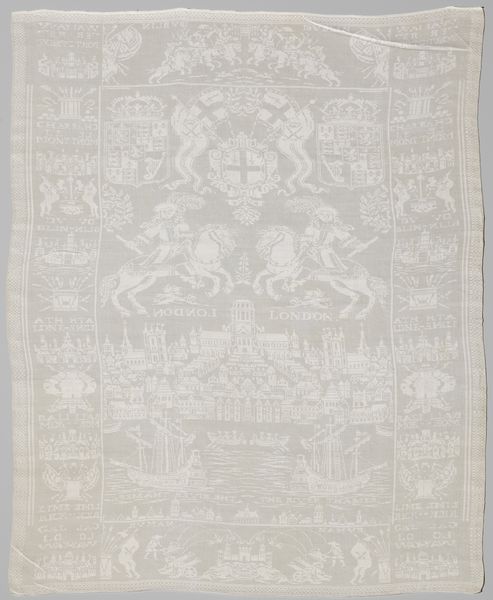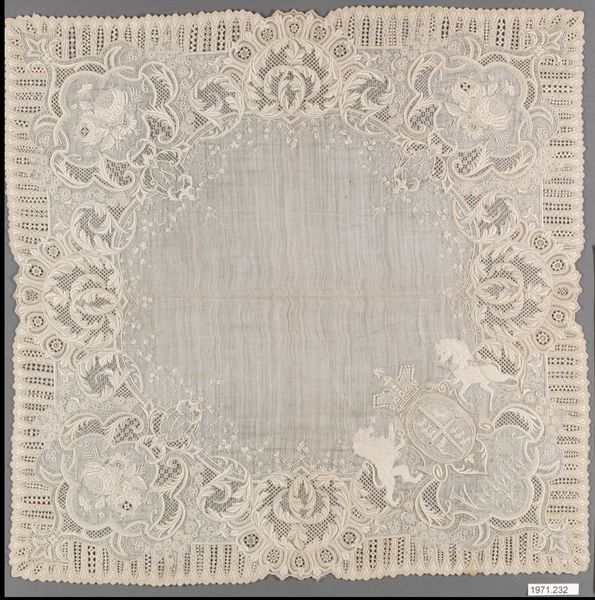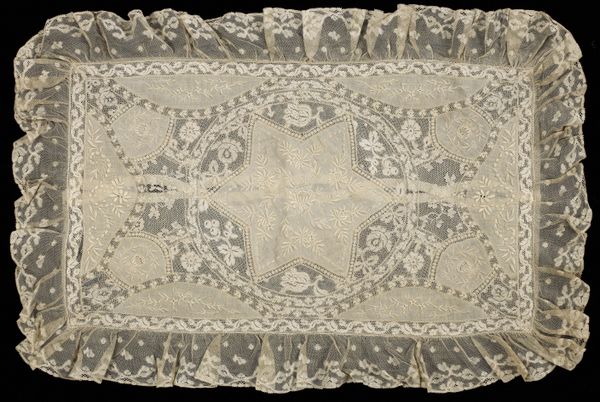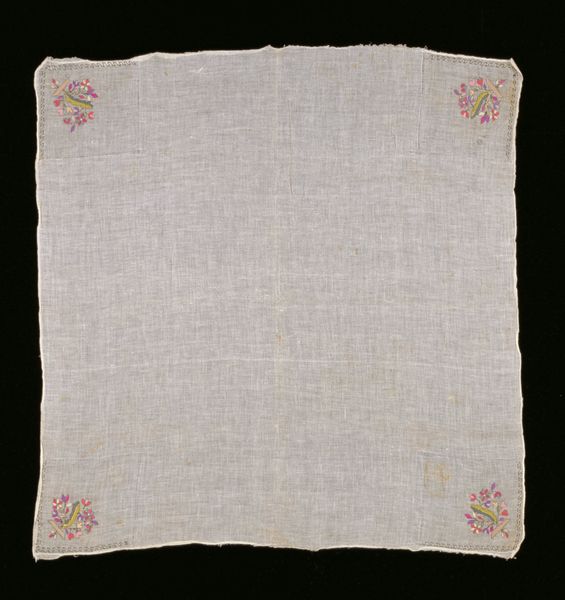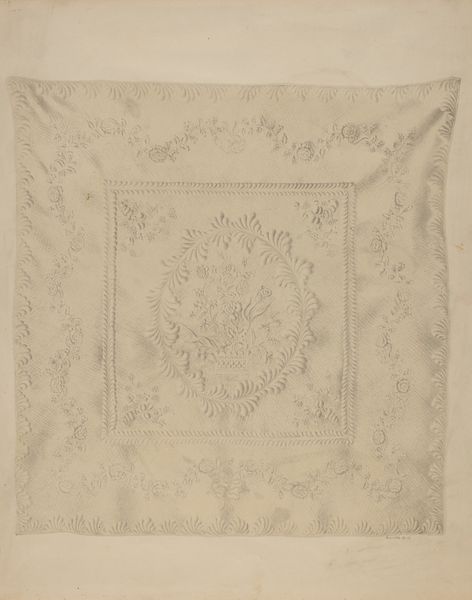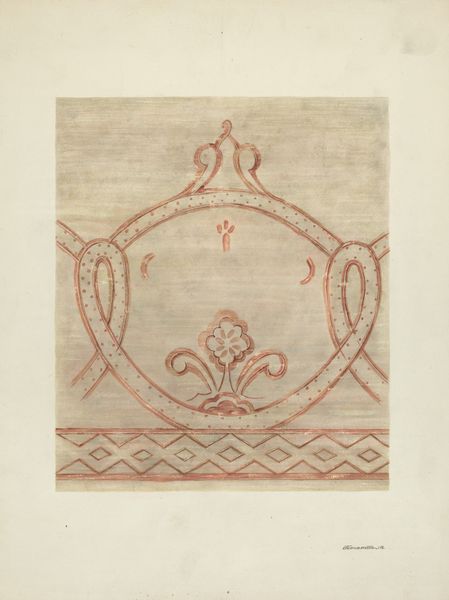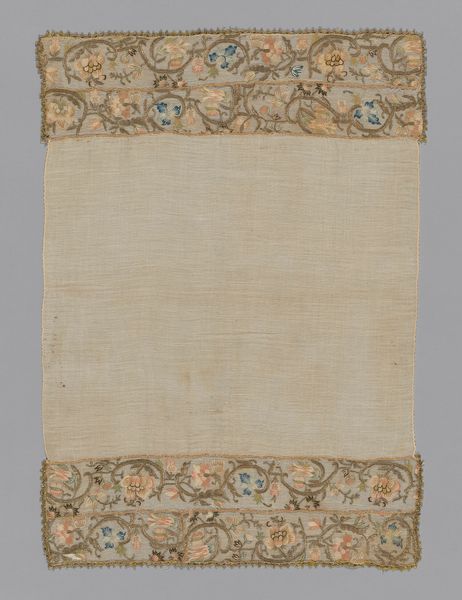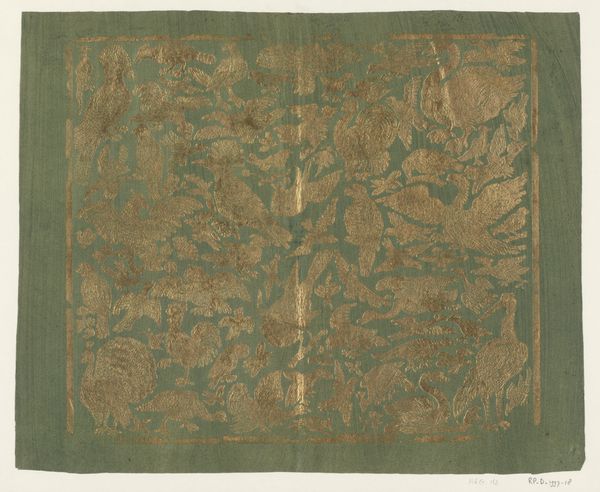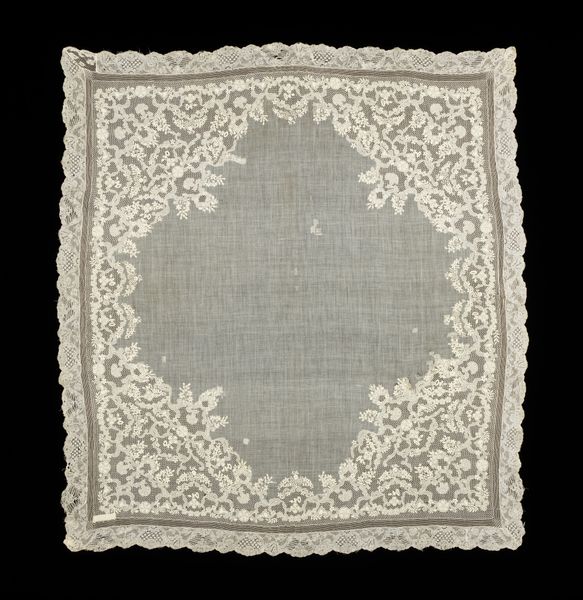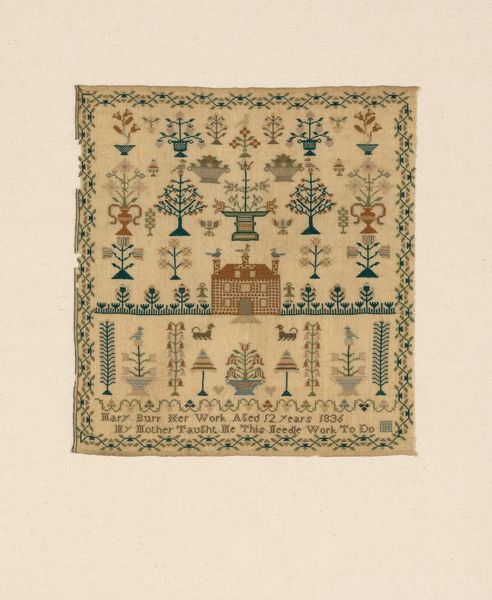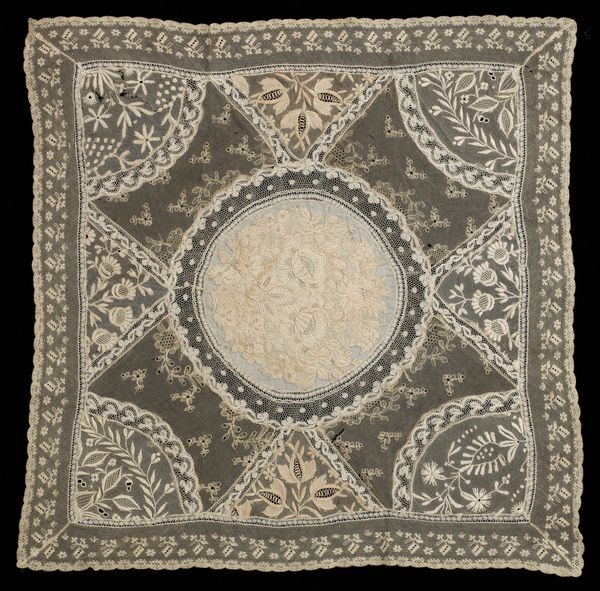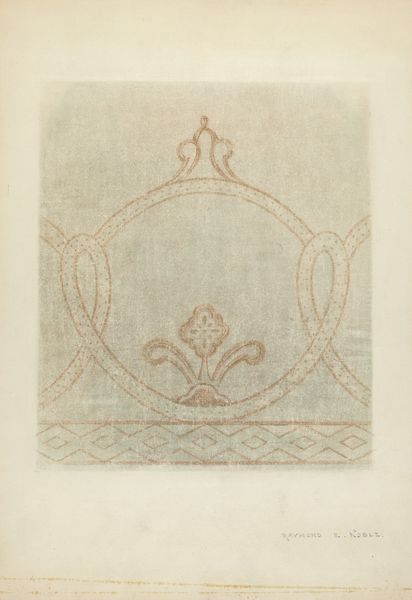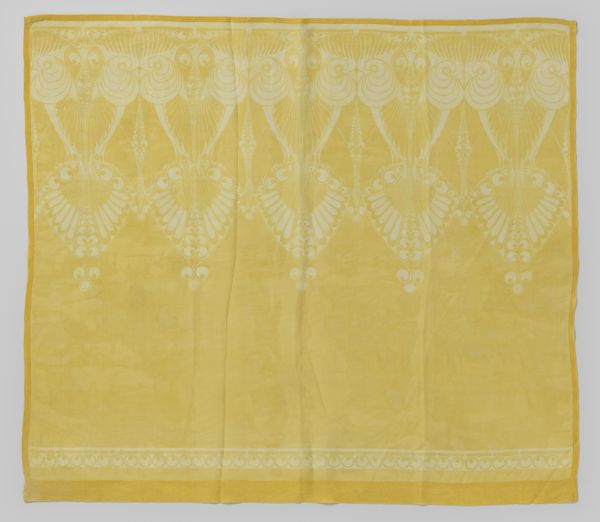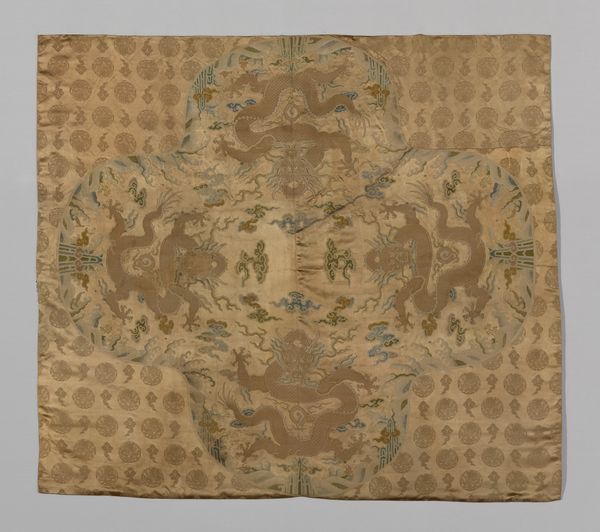
weaving, textile, watercolor
#
water colours
#
weaving
#
textile
#
figuration
#
watercolor
#
romanticism
#
france
#
line
#
decorative-art
#
watercolor
Dimensions: 52.7 × 68.1 cm (20 3/4 × 26 3/4 in.)
Copyright: Public Domain
This panel was designed by Charles Percier in France, though we don’t know exactly when. It’s made of cotton embroidered with cotton thread. Percier was one of the leading architects and designers of the Napoleonic era, and this panel reflects the aesthetic values of that time. See how the composition is symmetrical, balanced, and features motifs drawn from classical antiquity? This Neoclassical style was closely associated with Napoleon’s regime, which sought to emulate the power and glory of the Roman Empire. Notice the central emblem with the eagle, a symbol of imperial authority, flanked by winged horses? These images would have been instantly recognizable to contemporary viewers as symbols of Napoleon's power and ambition. Designs like these circulated widely through pattern books and workshops, shaping popular taste and reinforcing the regime’s authority. Historians rely on visual analysis, archival research, and social context to interpret works like this, understanding their role in shaping cultural values. By studying such objects, we gain insight into the relationship between art, power, and society.
Comments
No comments
Be the first to comment and join the conversation on the ultimate creative platform.
